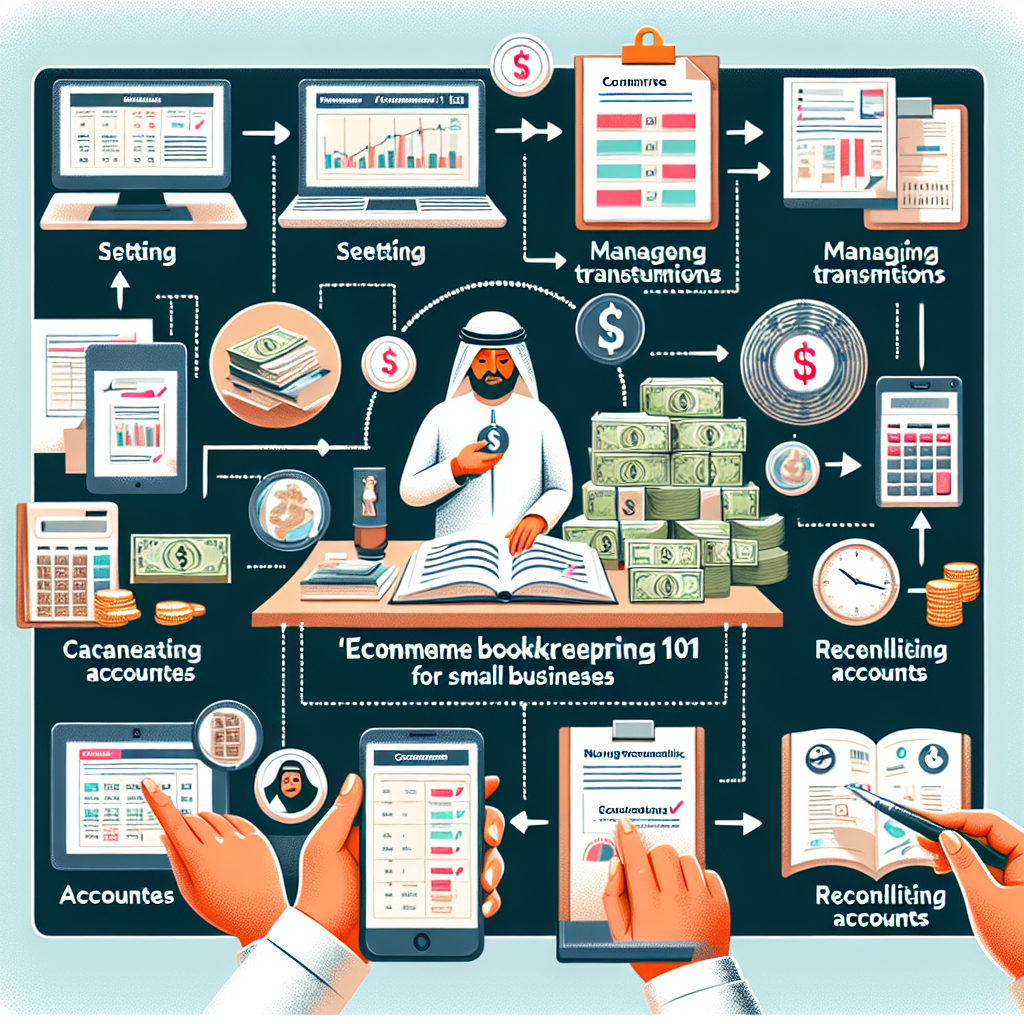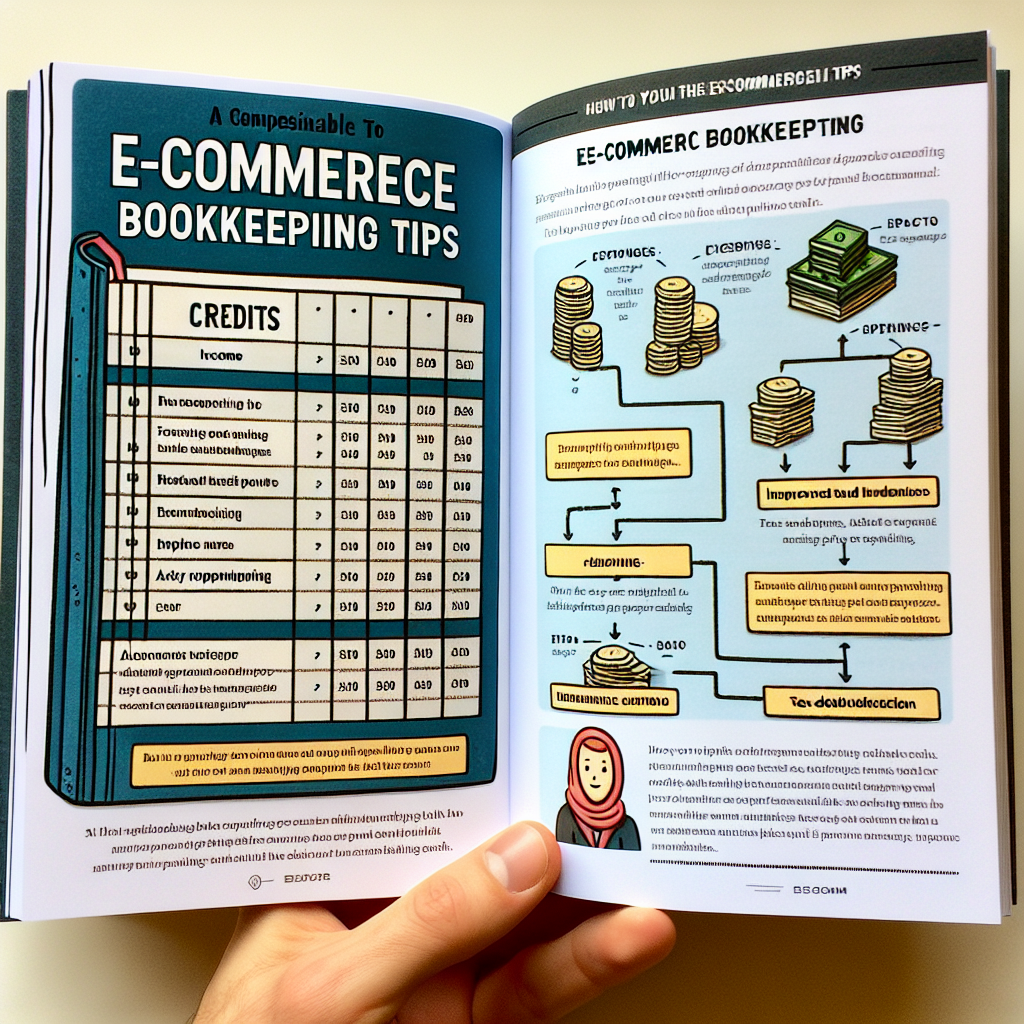Ecommerce Bookkeeping: 8 Tips for Self-Employed Beginners
Bookkeeping tasks are essential for successful day-to-day operations of any ecommerce business. It deals with everyday transactions such as recording, stockpiling, recovery of bookkeeping records, inventory management, and more. The more significant part occurs through cutting-edge cash flow management software, making it more straightforward to oversee and access real-time information. Considering the importance of bookkeeping, we have created this article to provide effective tips for your ecommerce bookkeeping.
Tips for Ecommerce Bookkeeping
Throughout the lifetime of ecommerce businesses, the small details may accumulate, and without proper bookkeeping, it makes the process more hassling and complicated. Someone who does good bookkeeping knows where all the cash is going or coming from. Keeping track of this information enables the small business to make much better decisions. Here are some you should take note of when you are your own ecommerce bookkeeper:
- Keep Business Documents Organized: A lot of bookkeeping has to do with organising data and maintaining it. It’s simple in principle but can save business owners so many headaches down the road. For example, the sales tax authority requested more information on specific transactions that you made three years ago. Having had your documents already well organised, you can provide those in your tax returns immediately. Everything is more streamlined with the right ecommerce accounting software. Seek help from your ecommerce bookkeeping or accounting in house team with which accounting software suits your business needs and most especially with navigating the program. The right software makes the bookkeeping processes smoother, including data entry, record keeping, consolidating data, preparing sales tax requirements, and organising these records overall.
- Record Financial Data: Your bookkeeping team can assist you with recording your ecommerce platforms’ business data, including shipping costs, inventory items, gross profit, and more. Be sure to regularly update and make precise records of your ecommerce books so you can keep quality and dependable information, which can greatly help you make cash flow forecasting for ecommerce, predicting any significant issues before they emerge.
- Keep Personal Costs Separate from Your Business Costs: As an ecommerce business owner, you must be involved in your business’s financial management, but not in a way that you use your personal credit card and bank accounts. Sorting through your private and business transactions is time-consuming, expensive, and an easy path to errors. So, keep business and personal accounts separate. By eliminating all personal transactions from your sales channels, you’ll significantly reduce the number of transactions your bookkeeper must categorise and reconcile.
- Document the Solutions for Each Mistake and Learn from Them: If you’re handling ecommerce bookkeeping matters on your own, you may be more prone to making mistakes. But once you get through the basics, make it a habit to address mistakes the moment you spot them and ensure that you learn from them as well. Keep track of any human error and solutions made so they can serve as your business’ growth benchmarks and prevent the same blunders the next time.
- Track Your Cash Flow: First and foremost, you will need to look at your business’s chart of accounts, including cash inflow (e.g., sales income statement) and outflow (e.g., overhead and operating expenses). At the end of each period you’re tracking, you should be able to tally your credits and debits easily in your balance sheet. Your cash flow statement and balance sheet should be as transparent as possible. Additionally, if you want to maintain positive cash flow, you must look at where your debts are going.
- Identify Your Break-Even Point: A business’s break-even point is when the income becomes equivalent to costs. It’s time you seriously investigate each of your costs—from lease to work to materials—and your evaluating structure. Ask yourself these questions: Are your costs too low or excessively high to arrive at your initial investment point in a sensible measure of time? Is your ecommerce business manageable?
- Use Accounting Software Programs: Every business needs to have an ecommerce bookkeeping software to precisely record their chart of accounts and data for their financial reports, surveys, and assessments. Cloud accounting software, such as XERO and QuickBooks, might be helpful choices to consider as they allow multiple users to work simultaneously on the same data, which can streamline bookkeeping tasks more effectively.
- Have Basic Knowledge of Key Bookkeeping Elements and Stay Updated: Whilst you can hire bookkeepers to manage your ecommerce business’ financial matters, it doesn’t hurt familiarising the basics of bookkeeping as they will come in handy in the long run. Abilities like bookkeeping, information passage, utilisation of calculation sheets, doing track inventory, invoicing, and time usage allow you to comprehend and work with the financial statements of an organisation, as well as achieve other key accounting liabilities. It’s crucial that you comprehend these regulations when you’re doing the bookkeeping by yourself, especially ecommerce sales tax. Make time to learn the basics of ecommerce bookkeeping services and stay updated with current tax laws in the ecommerce sector. Better yet, hire expert bookkeepers or accountants for ecommerce that provide holistic bookkeeping services on your behalf.




